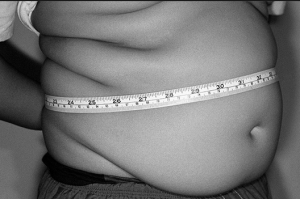About 41 million children worldwide are overweight – Report
 At least 41 million children under five worldwide are obese or overweight with the greatest number coming from low- and middle-income countries.
At least 41 million children under five worldwide are obese or overweight with the greatest number coming from low- and middle-income countries.
The Commission on Ending Childhood Obesity (ECHO) report that many children are growing up today in an environment that encouraged weight gain and obesity
This is driven by globalisation and urbanization, while exposure to unhealthy (obesogneic) environments is increasing in high- middle- and low-income countries and across all socioeconomic groups.
The ECHO report, which was made available to the Ghana News Agency, on Tuesday, by Fadéla Chaib, the Communications Officer and WHO Spokesperson, indicates that the marketing of unhealthy foods and non-alcoholic beverages was identified as a major factor in the increase in numbers of children being overweight and obese, particularly in the developing world
The report, culminating a two-year process to address the alarming levels of childhood obesity and overweight globally; shows that overweight prevalence among children aged under five has risen between 1990 and 2014, from 4.8 per cent to 6.1 per cent, with numbers of affected children rising from 31 million to 41 million during the period.
The number of overweight children in lower middle-income countries has more than doubled over that period, from 7.5 million to 15.5 million.
In 2014, almost half (48 per cent) of all overweight and obese children aged under five lived in Asia and one-quarter (25 per cent) in Africa and the number of overweight children aged under five in Africa had nearly doubled since 1990 (5.4 million to 10.3 million).
“Increased political commitment is needed to tackle the global challenge of childhood overweight and obesity,” said Sir Peter Gluckman, Commission co-chair.
“WHO needs to work with governments to implement a wide range of measures that address the environmental causes of obesity and overweight, and help give children the healthy start to life they deserve,” he added.
Dr Sania Nishtar, Commission co-chair, said: “Overweight and obesity impact on a child’s quality of life, as they face a wide range of barriers, including physical, psychological and health consequences.
“We know that obesity can impact on educational attainment too and this, combined with the likelihood that they will remain obese into adulthood, poses major health and economic consequences for them, their families and society as a whole,” she added.
The report calls for the implementation of comprehensive programmes that promoted the intake of healthy foods and reduce the intake of unhealthy foods and sugar-sweetened beverages by children and adolescents (through, for example, effective taxation on sugar-sweetened beverages and curbing the marketing of unhealthy foods).
It urges governments to implement comprehensive programmes that promote physical activity and reduce sedentary behaviors in children and adolescents.
The report also urge WHO to institutionalise, throughout the Organisation, a cross-cutting and life-course approach to ending childhood obesity.
It calls for improvement in the nutrition literacy and skills of parents and caregivers and the inclusion of the requisite nutrition and health education within the core curriculum of schools.
Source: GNA
